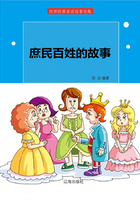"Did the administration of Walpole," says the biographer, "present any uniform principle which may be traced in every part, and which gave combination and consistency to the whole? Yes, and that principle was, THE LOVE OF PEACE." It would be difficult, we think, to bestow a higher eulogium on any statesman. But the eulogium is far too high for the merits of Walpole. The great ruling principle of his public conduct was indeed a love of peace, but not in the sense in which Archdeacon Coxe uses the phrase. The peace which Walpole sought was not the peace of the country, but the peace of his own administration. During the greater part of his public life, indeed, the two objects were inseparably connected. At length he was reduced to the necessity of choosing between them, of plunging the State into hostilities for which there was no just ground, and by which nothing was to be got, or of facing a violent opposition in the country, in Parliament, and even in the royal closet. No person was more thoroughly convinced than he of the absurdity of the cry against Spain. But his darling power was at stake, and his choice was soon made. He preferred an unjust war to a stormy session. It is impossible to say of a Minister who acted thus that the love of peace was the one grand principle to which all his conduct is to be referred. The governing principle of his conduct was neither love of peace nor love of war, but love of power.
The praise to which he is fairly entitled is this, that he understood the true interest of his country better than any of his contemporaries, and that he pursued that interest whenever it was not incompatible with the interest of his own intense and grasping ambition. It was only in matters of public moment that he shrank from agitation and had recourse to compromise. In his contests for personal influence there was no timidity, no flinching. He would have all or none. Every member of the Government who would not submit to his ascendency was turned out or forced to resign. Liberal of everything else, he was avaricious of power. Cautious everywhere else, when power was at stake he had all the boldness of Richelieu or Chatham. He might easily have secured his authority if he could have been induced to divide it with others. But he would not part with one fragment of it to purchase defenders for all the rest. The effect of this policy was that he had able enemies and feeble allies. His most distinguished coadjutors left him one by one, and joined the ranks of the Opposition. He faced the increasing array of his enemies with unbroken spirit, and thought it far better that they should attack his power than that they should share it.
The Opposition was in every sense formidable. At its head were two royal personages, the exiled head of the House of Stuart, the disgraced heir of the House of Brunswick. One set of members received directions from Avignon. Another set held their consultations and banquets at Norfolk House. The majority of the landed gentry, the majority of the parochial clergy, one of the universities, and a strong party in the City of London and in the other great towns, were decidedly adverse to the Government. Of the men of letters, some were exasperated by the neglect with which the Minister treated them, a neglect which was the more remarkable, because his predecessors, both Whig and Tory, had paid court with emulous munificence to the wits and poets; others were honestly inflamed by party zeal; almost all lent their aid to the Opposition. In truth, all that was alluring to ardent and imaginative minds was on that side; old associations, new visions of political improvement, high-flown theories of loyalty, high-flown theories of liberty, the enthusiasm of the Cavalier, the enthusiasm of the Roundhead. The Tory gentleman, fed in the common-rooms of Oxford with the doctrines of Filmer and Sacheverell, and proud of the exploits of his great-grandfather, who had charged with Rupert at Marston, who had held out the old manor-house against Fairfax, and who, after the King's return, had been set down for a Knight of the Royal Oak, flew to that section of the Opposition which, under pretence of assailing the existing administration, was in truth assailing the reigning dynasty. The young republican, fresh from his Livy and his Lucan, and glowing with admiration of Hampden, of Russell, and of Sydney, hastened with equal eagerness to those benches from which eloquent voices thundered nightly against the tyranny and perfidy of courts. So many young politicians were caught by these declamations that Sir Robert, in one of his best speeches, observed that the Opposition consisted of three bodies, the Tories, the discontented Whigs, who were known by the name of the Patriots, and the Boys. In fact almost every young man of warm temper and lively imagination, whatever his political bias might be, was drawn into the party adverse to the Government; and some of the most distinguished among them, Pitt, for example, among public men, and Johnson, among men of letters, afterwards openly acknowledged their mistake.
The aspect of the Opposition, even while it was still a minority in the House of Commons, was very imposing. Among those who, in Parliament or out of Parliament, assailed the administration of Walpole, were Bolingbroke, Carteret, Chesterfield, Argyle, Pulteney, Wyndham, Doddington, Pitt, Lyttelton, Barnard, Pope, Swift, Gay, Arbuthnot, Fielding, Johnson, Thomson, Akenside, Glover.
The circumstance that the Opposition was divided into two parties, diametrically opposed to each other in political opinions, was long the safety of Walpole. It was at last his ruin. The leaders of the minority knew that it would be difficult for them to bring forward any important measure without producing an immediate schism in their party. It was with very great difficulty that the Whigs in opposition had been induced to give a sullen and silent vote for the repeal of the Septennial Act.















